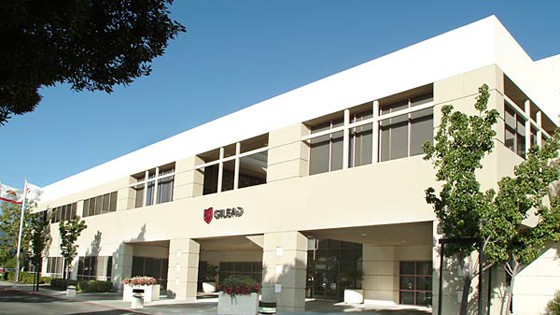
Gilead Sciences reported positive data from the first of a series of phase III trials of its hepatitis C candidate sofosbuvir, a key component of its plan to develop an all-oral regimen for the disease.
The POSITRON study looked at the combination of nucleotide polymerase inhibitor sofosbuvir (formerly GS-7977) with ribavirin over 12 weeks in patients who were ineligible for injectable interferon alfa-based therapy.
Gilead’s regimen achieved sustained virologic response (SVR) in 78 per cent of participants taking the drug, putting the company on track to move ahead with regulatory filings in 2013, according to the firm’s chief scientific officer Norbert Bischofberger.
The trial included patients with the most common hepatitis C virus genotype 1, as well as the less common genotypes 2 and 3 which account for around a third of all cases worldwide.
Two additional studies in genotype 2/3 patients are underway with results expected in the first quarter of 2013, while a fourth study in genotype 1 – looking at sofosbuvir with ribavirin and pegylated interferon alpha – is also ongoing.
Gilead is among a clutch of companies racing to develop all-oral alternatives to interferon therapy for hepatitis C, and nucleotide polymerase inhibitors or ‘nukes’ such as sofosbuvir have been tipped as the next big class in the category.
Other orally-active agents – namely the protease inhibitor class represented by Johnson & Johnson/Vertex/Mitsubishi Tanabe’s Incivek/Incivo (telaprevir) and Merck & Co’s Victrelis (boceprevir) – are already available and have started to ramp up revenues from use in combination with interferon.
Combination therapy based on protease inhibitors with pegylated interferon alpha and ribavirin achieves SVRs in just 50 to 80 per cent of patients, depending on the hepatitis C virus strain, but adding protease inhibitors pushes response rates higher.
Now the aim is to replace interferon with other oral agents that maintain or improve these levels of efficacy whilst avoiding the side effects associated with interferon therapy.
Bristol-Myers Squibb was forced to halt development of its own nuke compound BMS-986094 earlier this year on safety grounds, extending Gilead’s lead in the race to bring a drug in the class to market.
Other companies developing nukes include Abbott Laboratories, whose ABT-333 candidate showed promising results in a phase II trial.




